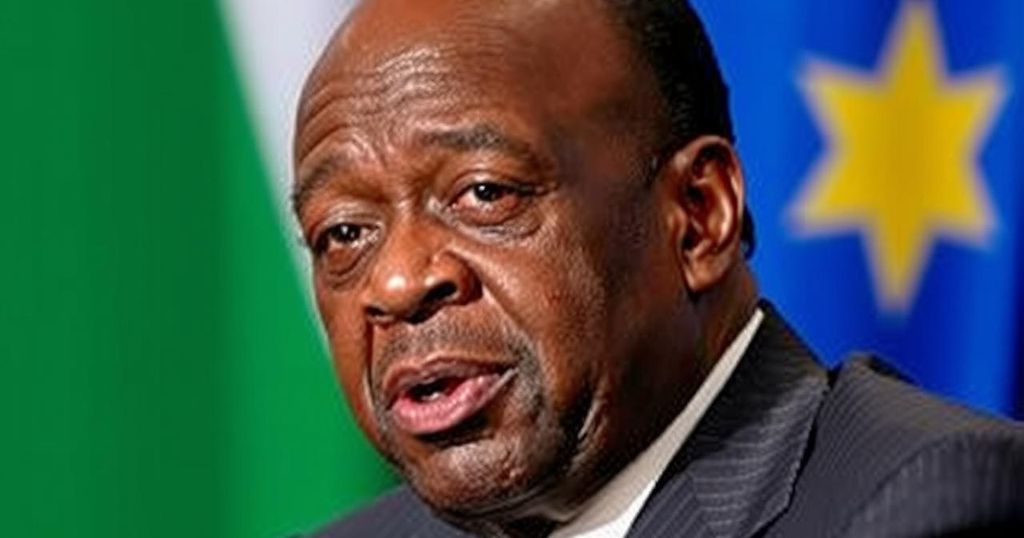President Mokgweetsi Masisi of Botswana has conceded defeat after the Botswana Democratic Party (BDP) lost its parliamentary majority in recent elections. The opposition coalition, led by Duma Boko, captured a significant share of the seats, while the BDP secured only two. This loss marks a historic shift in Botswana’s political landscape, ending the BDP’s long-standing rule since independence in 1966. Masisi has expressed his commitment to ensuring a smooth transition to the new government, urging his supporters to do the same.
Mokgweetsi Eric Masisi, the President of Botswana, has officially acknowledged his defeat after the Botswana Democratic Party (BDP) suffered a significant loss in the recent parliamentary elections. This outcome has resulted in the end of an era for one of Africa’s prominent liberation movements, as the BDP, which has maintained power since the nation’s independence in 1966, secured only two parliamentary seats by early Friday morning. As ballot counting continued, it became evident that the opposition had gained control, winning two-thirds of the available constituencies—40 out of 61. The coalition known as the Umbrella for Democratic Change (UDC), headed by Duma Boko, has emerged with 28 seats, solidifying its position against the BDP. To form a government, a party or coalition must capture at least 31 seats, and as the election results stand, Mr. Boko is positioned to be the next head of state as parliament prepares to convene for the presidential election. Additionally, the Botswana Congress Party (BCP), led by Dumelang Saleshando, has claimed eight seats, while the Botswana Patriotic Front (BPF), supported by former President Ian Khama, has acquired five. It is worth mentioning that Khama once endorsed President Masisi but subsequently withdrew his support, aligning himself with opposition candidates in this election cycle. In a live broadcast statement, President Masisi expressed his acceptance of the election results, stating, “It is clear my party has lost ‘massively.'” He further declared his intention to facilitate a smooth transition process to the incoming government, conveying gratitude for his time in office. His remarks also included advice for his supporters to unite behind the new administration. The final official election results are anticipated to be released by the Independent Electoral Commission later today.
The elections in Botswana are significant not only for their immediate political implications but also for their historical context. The BDP has governed Botswana since the nation gained independence in 1966, making its current electoral loss a pivotal moment in the country’s political history. The recent elections are indicative of a broader trend of electoral change in Botswana, where leadership transitions occur at the polls, even in a long-standing party system. The structure of the electoral system, mirroring that of South Africa, allows voters to select parties rather than individual candidates, resulting in coalition dynamics that influence governance. As the strategy of the opposition becomes successful, it calls for analysis regarding the future landscape of Botswana’s political framework.
In conclusion, President Mokgweetsi Eric Masisi’s acceptance of defeat in the recent parliamentary elections marks a transformative moment for Botswana’s political landscape. The BDP’s significant loss highlights shifting voter sentiments and the growing support for opposition parties, particularly the UDC. As President Masisi prepares for a transition of power, the outcome not only signifies the end of an era but also sets the stage for potential reforms and new governance perspectives under the upcoming leadership of Mr. Duma Boko.
Original Source: www.theeastafrican.co.ke






